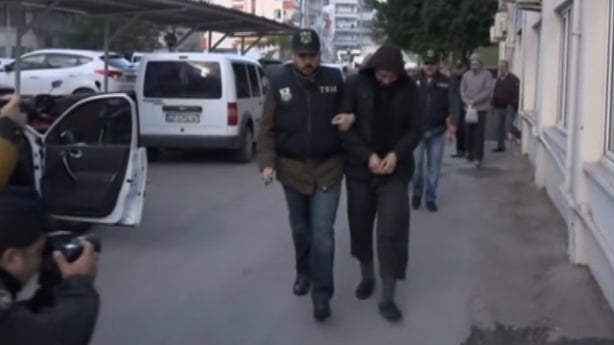A suicide bomber with links to the so-called Islamic State group who killed 10 German tourists in the heart of Istanbul's historic district entered Turkey as a refugee from Syria and went undetected as he was not on any watch lists, according to Turkish Prime MinisterAhmet Davutoglu.
The bomber, who blew himself up among groups of tourists yesterday near the Blue Mosque and Hagia Sophia, the top sites in one of the world's most visited cities, had registered with immigration authorities in the city a week ago.
Turkey has kept an open border to refugees from Syria's civil war and is now home to more than 2.2 million, the world's largest refugee population.
However, its border has also been used by foreign fighters seeking to join IS or return from its ranks to commit atrocities abroad.
"This individual was not somebody under surveillance. He entered Turkey normally, as a refugee, as someone looking for shelter," Mr Davutoglu told a news conference, adding he had been identified from fragments of his skull, face and nails.
"After the attack his connections were unveiled. Among these links, apart from Daesh, we have the suspicion that there could be certain powers using Daesh," he said, using an Arabic name for IS.
Turkey accuses Syrian President Bashar al-Assad, and his allies including Iran and Russia, of cooperating with IS in the Syrian regime's effort to destroy Syrian opposition forces.
Turkey, which like Germany is a member of the US-led coalition against IS in Syria and Iraq, has become a target for the radical Sunni militants.

German Interior Minister Thomas de Maiziere, visiting Istanbul, said there were no indications Germans had been deliberately targeted in the attack and that he saw no reason for people to change travel plans to Turkey.
He said Germany stood resolutely by Turkey's side in the fight against terrorism.
"If the terrorists aimed to disturb, destroy or jeopardize cooperation between partners, they achieved the opposite. Germany and Turkey are becoming even closer," he said, adding there was no link to Germany's role in the fight on terrorism.
Mr Davutoglu said the security forces had detained four people suspected of links to the suicide bomber, and that six of those wounded were still in hospital.
The German foreign ministry said earlier five Germans were still in intensive care.
A Peruvian national was also injured in the blast.
Turkey has rounded up hundreds of suspected IS members since launching what it called a "synchronised war on terror" last July, raids which continued today.
Since the attack, police have detained a total of 65 people, including 16 foreign nationals, in six Turkish cities, the Dogan news agency reported.
The Russian foreign ministry confirmed three of those detained were Russian nationals, but it was not immediately clear whether there was any connection to the Istanbul attack, for which there has been no claim of responsibility.

